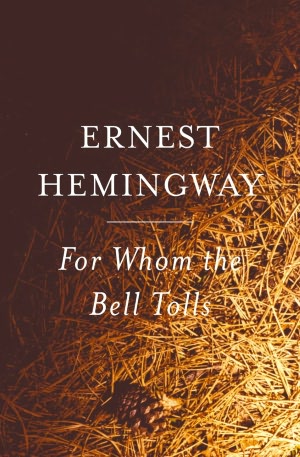Just like Woody Allen's Gil Pender, it is easy to get caught up in the romance of the ex-pat community in Paris--the incredible art, literature, salons. Though it is impossible for me to not say that what this reading spree brought up in my thought life the most was how glad I am to be a woman today. The culture of multiple mistresses and people openly accepting it, coupled with double standards for women and hypocritical expectations for wives in light of it all was truly grotesque. Zelda Fitzgerald's own artistic life was stunted by Scott having her publish under his name or forbidding her to pursue dance or publish her writing work at all, saying that he had claim to the ideas within it.
The concept that struck me the most while reading, though, was that of memory, which I've written about quite a bit over the years. It's the great invention of the mind in Rodman Philbrick's Young Adult Freak the Mighty. In Evening, by Susan Minot, it colors the narrator's entire existence. In Man Walks into A Room, Nicole Krauss's main character loses his memory of all things relational. In The Inheritance of Loss, Kiran Desai talks about some parts of our narrative are lost and some are purposely forgotten.
I am trying to decide where it fits for Hemingway. Early in The Paris Wife, he takes Hadley on a trip to where he recovered from being injured in World War 1. In his mind, the field was still desecrated with loss of life and the town where he was taken care of was pristine and quaint--but neither was the case when he arrived:
"When Ernest found the slope where he'd been wounded, it was green and unscarred and completely lovely. Nothing felt honest. Thousands of men had died here jut a few years earlier, Ernest himself had bled here, shot full of shrapnel, and yet everything was clean and shiny, as if the land itself had forgotten everything," (103).
"For the whole visit, Ernest wrestled with memory. Everything had changed and grown dingy in the four years since he'd been here," (102).
I suppose it is one of those mysteries of being human--how we can long so deeply for times that are past, even if those times were accompanied by struggle. Perhaps in our minds, they remind us that we made it through, or perhaps the struggle has been slightly erased so that we don't remember that part anymore. Hemingway himself describes it in A Moveable Feast: "There are many sorts of hunger. In the spring there are more. But that's gone now. Memory is hunger," (57).
 |
| Elk Lake, 2011. I only wish I had a picture of the American flag boxers my best friend and I *sewed ourselves* for 4th of July 1996. |
Today, for me, memory is hunger. On some levels the memories I've been escaping to this morning seem insignificant--but it happens every 4th of July that I am in New York City--a city I love with all my heart. All I want right now is to be watching my hometown's parade, wearing my running clothes from the annual 5K, thinking about swimming in somebody's pool and going up to the high school for fireworks later. Or, sitting at a simple lake house, eating off the grill, and watching a homemade fireworks display planned by friends I've known since the mid nineties. I keep finding myself wanting to justify my nostalgic longing for these simple memories or the audacity I have for writing them in connection to Hemingway--but I'm not going to, because it's what is true for me today (which is interesting, because the quotes I wanted to write about in this post have been sitting in my blog drafts for a month)
What I do think is worth considering, though, is when you begin to appreciate what is past. Hemingway did not write of nostalgia until the end of his life. A Moveable Feast, his memoir of his early years in Paris, was published after he took his own life and carries a tone much different from his earlier work. In a painful-to-read confession he states that he wishes he had died before falling in love with anyone else. I'm not sure that I believe him, completely. Hadley asks him in The Paris Wife, not long after the visit to the town where he was shot and recovered: "When does it mean something? When everyone finally gets smashed to bits?" (145). I think that is a fair read of Hemingway--and a terrifying way to live, but it pulls together my thoughts. When he was with Hadley, he could only think of what might be next. The present didn't take on any value until it was long gone.
This year I started talking with my students about the idea of being present where you are, whether it is in a class discussion, a book club, or with their friends. I suppose that is what I wish the men of the Lost Generation understood (hoping that it wasn't that restlessness that produced their drive and in turn art), and on a much smaller level, what I need to remember as I go over to the Brooklyn Bridge Park to celebrate Independence Day with dear friends later. It is in view of the Statue of Liberty, after all.
an aside, after my initial posting: I want to think later today about the implications of these American writers who chose to do so much of their writing elsewhere. Looking at the title of this post, one might infer that my writing about it was a little more academic. But alas. It is a holiday, after all.






